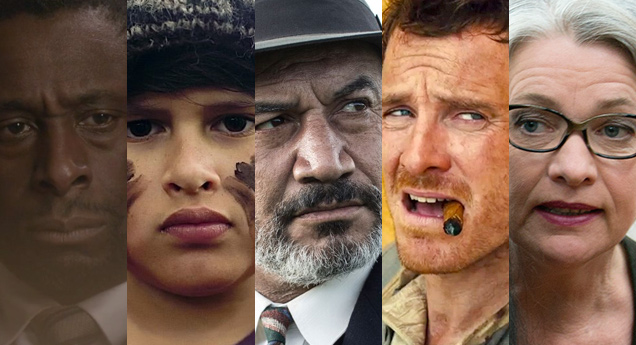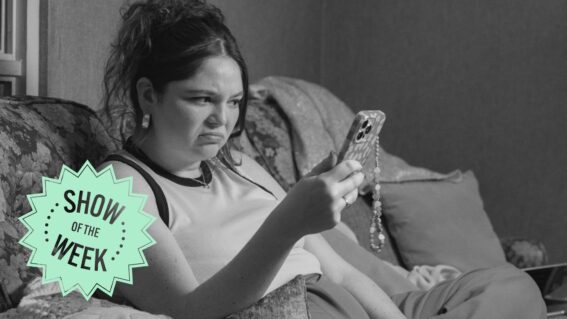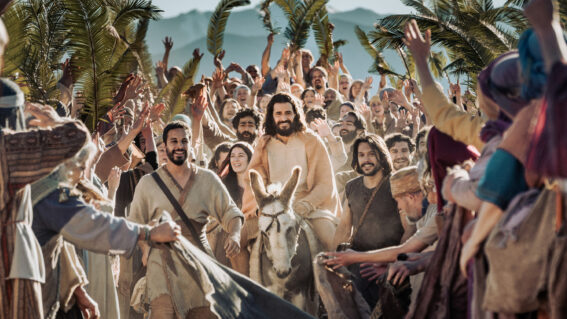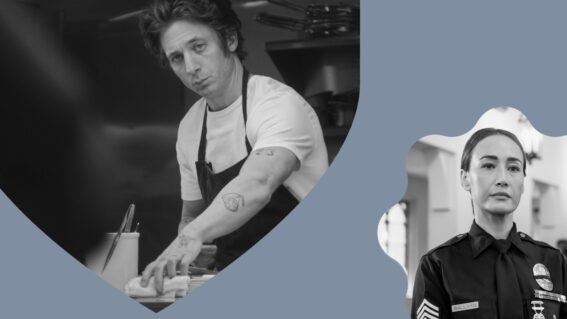Interview: Ant Timpson on the Rialto Channel NZ Film Awards
After a hiatus, on Saturday Feb 18th the Rialto Channel NZ Film Awards – perhaps better known as the Moas -return with a hiss and roar (that’s the noise Moas made, right?). Nominees include everything from box office juggernauts to incisive docos, art films, and genre exercises. We’re particularly proud to be sponsoring the Best […]

After a hiatus, on Saturday Feb 18th the Rialto Channel NZ Film Awards – perhaps better known as the Moas -return with a hiss and roar (that’s the noise Moas made, right?). Nominees include everything from box office juggernauts to incisive docos, art films, and genre exercises. We’re particularly proud to be sponsoring the Best Screenplay award (Hunt for the Wilderpeople, Mahana, Slow West, The Great Maiden’s Blush, The Rehearsal).
But enough tooting our own horn, we sat down with Executive Producer Ant Timpson to get the inside scoop on the show.
FLICKS: The awards move to Auckland’s ASB Showgrounds this time around. That’s pretty exciting. What does it mean for the show?
ANT TIMPSON: The Showgrounds, well, it means a bigger venue. And it’s kind of an open floor room style, which means we can set it up a lot easier. The production team are ecstatic to have a room that’s actually rigged, and it makes things a lot easier for them. So yeah, it gives us a bit of flexibility in case we need a few more tables squeezed in. And also, I guess, for parking and everything, it’s pretty easy for people to just hoon out to the Showgrounds. And we ran up against the fact our old venue was tight with cruise liners. This is the craziest period for them, so we had to look at new venues and the Showgrounds were really great. They stepped up and helped us out.
You had a year off from the awards. Was that just down to a lack of content?
Well, there are some genres, like docs, that are kind of always healthy. There always seems to be a few more docs than features. But in terms of features, yeah, there were maybe only four or five eligible ones. And I think at that stage, I was a producer on two of them. So I just felt like that was going to look really dodgy at some point. There were 12 nominations for each film or something crazy. So it worked out well that suddenly we had an abundance of titles to choose from. And docs were really brutally hard to cut down.
It’s a very competitive category, as many of them are. Was there a point where you suddenly realised that there was enough stuff in the pipeline, that it would be happening again?
Yeah, we had constant talks with Rialto Channel [naming sponsor and broadcast partner] about what was happening and also the NZ Film Commission, to see what was coming up and what films were going to be around. And then we just kept trying to lock a date and hopefully didn’t screw anyone by making it, like, right on a point where someone’s film is just being finished, or it was just being seen for the first time.
One of the things I really like about the spread of nominations, is seeing the international component of some titles. So it’s not just strictly homegrown content, but co-productions as well. Taking that into account, how does that range of different films make you feel about this period of New Zealand film?
The co-pros really add a really interesting angle to it all. And other films like Free in Deed as well, which when you look from outside, people think it’s a US film, but is very much a New Zealand co-production. We say official co-pros, which is like a treaty agreement. Then there are films that are made with an enormous amount of New Zealand talent. And we’re always looking for smaller films, films that might slip through the gap that don’t get the profile. And that’s why Self Funded feature and short film categories popped up.
There’s been an argument in years gone by about what is a New Zealand film, and to eliminate every film that has a kind of international partnership, I think, is really narrow-minded. They might not be your quintessential New Zealand story, but they’ve come from New Zealand talent. Plus, the co-productions don’t necessarily crowd out the more Kiwi-flavoured titles. For example’s sake, if you look at ‘Slow West’ in the context of other nominees, it’s not a shoe-in for awards.
Yeah, I mean even though it has Michael Fassbender in the running for Best Actor, you’re talking about a judging panel of their peers a lot of the time. Maybe not to the level of Fassbender, but great actors and actors and other people from the industry internationally. They’re just basing it on what’s working for them on that moment when they’re judging.
Hey, you’ve anticipated a question of mine, actually, and that was about how the judging actually works for these awards. Because it’s kind of nice that’s not just a few people sitting around a cafe in Grey Lynn over a flat white deciding who wins, right?
I don’t think it was ever that. I remember being involved with the awards years and years ago.
I’m not saying anything. I’m certainly not saying it’s a smoky backroom.
As you’d know, within everything in the music industry, and everything else here, there’s one degree of separation. So it was really hard in those prior years not to have some sort of bias attached. And we’ve done it even through 48Hours, we’ve now started taking the final judging offshore. Because I noticed when we did do all the judging for that comp, even though people swore like, “I want the best film to win”, there was this definitely some sort of subconscious bias going on. And you can extrapolate that out to people who just really are so friendly with other people nominated or know someone, have good relationships with people. It’s very hard not to support them, whether it’s on the surface or subconscious. You do want your mate to win. So taking that offshore was a really cool thing to do.
We got some great people lined up, by partnering with an overseas producer over there that I met years ago, Stephanie Trepanier, who helped me with Turbo Kid, getting it to the markets over there. And so she’s really well-connected through guilds and agents and assembles a great team. I just think that it’s an interesting way. Sometimes, you have films that are so iconic to New Zealand, but how are those being perceived offshore? So I think it levels out everything really, really well. I think that the judging that happens and what we do, might not line up with previous organisations that used run the awards. Whether that’s a right thing or wrong thing, I mean, that’s for other people to debate.
To be honest, it just makes it bloody interesting, and it takes away a bit of the predictability from the awards. Thinking about this year’s nominees, if it wasn’t for the strong international reception to ‘Wilderpeople’, you’d be sort of questioning whether your judges would get it. Is its New Zealand sensibility going resonate strongly with them? But I think if you look across the nominees generally, they’re not films that are necessarily peculiar to the local environment.
I think it takes having that separation, that distance, it means that people aren’t thinking about whether the film was a mega-hit in its own country. You don’t have that sort of overwhelming public awareness, where it can sometimes push the vote. A lot of that happens with the Oscars, because a lot of the judging panel are so old there. If they hear about something getting a lot of good buzz, that can be enough to get a vote, the Oscar push is so hard is because so many of the Academy don’t end up watching the films.
No one needs to go around the rest homes of New Zealand, currying anyone’s favour for the Moas, then.
Yeah.
So, unlike the Oscars, it’s not about the promotional campaign for the film. It’s not about the whispering campaign or ‘for your consideration’ ads. It’s just “watch the movies”.
Yeah, I think it’s a real, pure result. I hope it is. I mean, that’s the whole idea.
We’re really stoked to be presenting the Best Screenplay award at this year’s Moas. It’s an event that I’ve enjoyed attending and covering in previous years, so it’s nice to actually get a little bit more involved. And really heartening to see such a strong bunch of nominees.What does the Best Screenplay lineup of contenders say about the year’s writing?
That it’s quite diverse in terms of content, all the films this year cover a lot of bases in terms of demographics. But I guess that’s happening around the world now. People want to break down formulas and you get personal stories mixed in with the larger sort of effects-orientated movies internationally. So for us to have a diverse, interesting, very healthy quadrant-targeted lineup of films is really encouraging. But it is a couple of years’ worth that are getting down to that. And, you know, you can’t have good films without great scripts, obviously. So I think you guys getting behind the Screenplay award is probably a smart move, because I think it’s a real sign of what’s going to end up taking out Best Film. Can’t always say that, but it’s sometimes a good indication of how the judging panel works.
This might get me in trouble with Inland Revenue or Department of Internal Affairs, but has anyone set up a side betting pool on the awards yet this year?
No, but I’m sure, I’m sure you could probably set up something pretty easily. We do the Oscar pool every year, as you do, I’m pretty sure. And you’ve participated in ours.
Yeah, I had a good year. I’ve had a terrible, terrible year. And another pretty good year.
I think people are probably going to have their favorites this year. I mean, Wilderpeople is obviously a force to be reckoned with. It’s definitely not the dark horse of the year.
Literally or metaphorically.
Yeah. What is the dark horse of the year? I’m hoping to be surprised by a lot of the winners on the night. I mean, we don’t know exactly how it’s going to roll out just yet. But it’s getting down to the wire.
Shit, it’s close, mate.
Yeah. We should know these things by now, but we’re still working on the graphic packages of how they’re going to look on the night.
So there’s going to be some sort of sweaty-fingered, last minute engraving of awards?
Oh, yeah. The engraving of the awards is a really frustrating part of it, because there’s a lot of trust involved.
Well, if you need anyone to check typos, I’m around.
It’s going to be a fun night. I mean, it is about the industry. Though I think there is some interest in the public about who wins, and seeing the awards show itself. But yeah, it is a real celebration for the industry first and foremost.
That’s so important now, because that’s the flavour of the event. And that’s what falls away when awards shows get larger and larger and more geared towards the TV audience, the actual experience for the people who are there sort of becomes secondary to that. And when you’ve got such an impassioned industry as the film-making community in New Zealand, give them a bloody party.
That’s what it really is at the end of the day, I mean, because all awards are inherently kind of a little bit silly. Because you can grab different judging panels, get different results. It’s not like running a 100 meter race at the end of the day. But the fact that all the nominations get some air time, everyone gets to see films they haven’t maybe heard about – that they want to seek out – is a huge part of why this thing happens. We’re such an opinionated bunch of people, so it’s really good to get everyone in the same room, because the after drinks are always interesting. And there’s some cool connections that happen throughout the whole thing as well, where people can touch base and in person.
Do you think that in 12 months time, it’s feasible to do this again, based on what you know is coming up?
That’s a really good question. I don’t know. The Film Commission’s budget’s not expanding dramatically, so we’re always going to be limited in terms of productions that way. It’s whether the independent scene really explodes in terms of self funded stuff, to some extent. That’s probably going to increase as people start making a lot better films on smaller budgets. But yeah, in terms of the larger productions, I think it’s probably looking like maybe it’ll have to be a biannual event. Is probably a little bit less stress for us about, “is it going to happen? Is it not going to happen?” and then having to push things out. And sponsors might really warm to the fact that we don’t have them every single year. One problem is that some films, very early on in terms of eligibility of when they were produced, might feel a little bit old by the time the awards come around. So that’s just a thing you have to really weigh up. But, I mean, everyone likes another award, another nomination. So yeah, I think biannual’s looking kind of good.
And in the meantime, just make it a good party, I guess?
That’s the number one thing is yeah, you want people to have a good time on the night and for us organisers not to stress out, and actually kick back and have some fun as well.
Well, that’s asking way too much.
The Rialto Channel NZ Film Awards take place on Sat Feb 18th.
The show will be live-streamed online – more info to come.






















